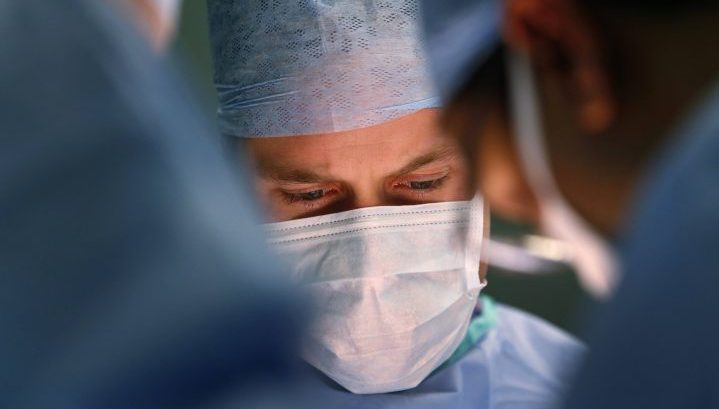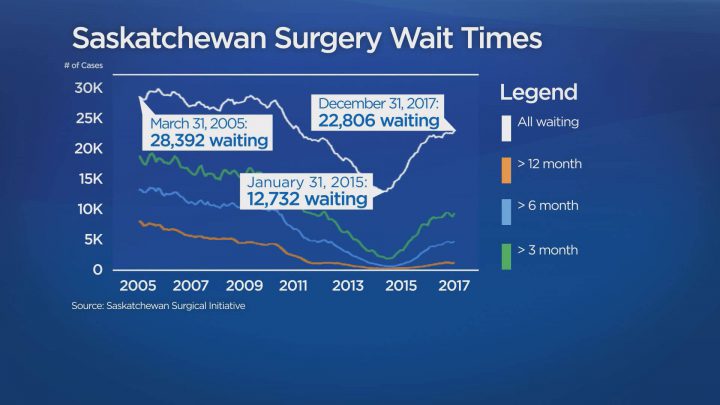Saskatchewan’s surgery wait times were on a downward trend between 2005 and 2015. However, in recent years more and more patients have been waiting longer for surgeries.

“We do have a growing population, and in some ways an aging population, which does drive up utilization. So that’s why I think we’re seeing some of these new pressures,” Rural and Remote Health Minister Greg Ottenbreit said.
Total people waiting for surgery hit their lowest levels on May 31, 2015, at 12,732. On December 31, 2017, the province recorded 22,806 people waiting for surgery. In that same time frame people waiting for three, six and 12 months for surgery all climbed.
“We have 10,000 people waiting for surgical procedures like hip replacements, knee replacements, cataracts. That’s ten times what it was in 2015, which is when the Sask Surgical Initiative ended,” Opposition Leader Ryan Meili said.
The Saskatchewan Surgical Initiative was a four year targeted plan to reduce wait times that ran from 2010 to 2014.

Get weekly health news
Meili says when that initiative concluded the buck also stopped.
“What I really see here is a situation where the government threw money at it for a period of time, had less money around, but didn’t make the systemic or in their language transformational required to actually keep wait times down,” he said.
Ottenbreit said that less urgent surgeries, like the joint procedures Meili discussed, can be postponed if a more acute case, such as bypass surgery or a cancer-related operation, come up at the surgical centre.
The minister acknowledged that there has been an “up-tick” in wait times and there is more work to do, but overall he stands by the recent record.
“Still, 79 per cent of them are within three months and 91 per cent within six,” Ottenbreit said.
There are still other ways to reduce wait times to province is working on. Ottenbreit spoke highly of smaller surgical centres, like the ones in Moose Jaw and Yorkton. He sees them as important factors in lightening the surgery load.
READ MORE: Saskatchewan spending record $5.36B on health care
“We want to continue to utilize those regional facilities to do some of the less acute, and whatever surgeries we can do there, to take some of the pressures off the more acute centres,” Ottenrbeit said.
In addition to investment in small centres, Ottenbreit said $72 million is being added to the Saskatchewan Health Authority budge this year, and more College of Medicine graduates are staying in Saskatchewan.





Comments